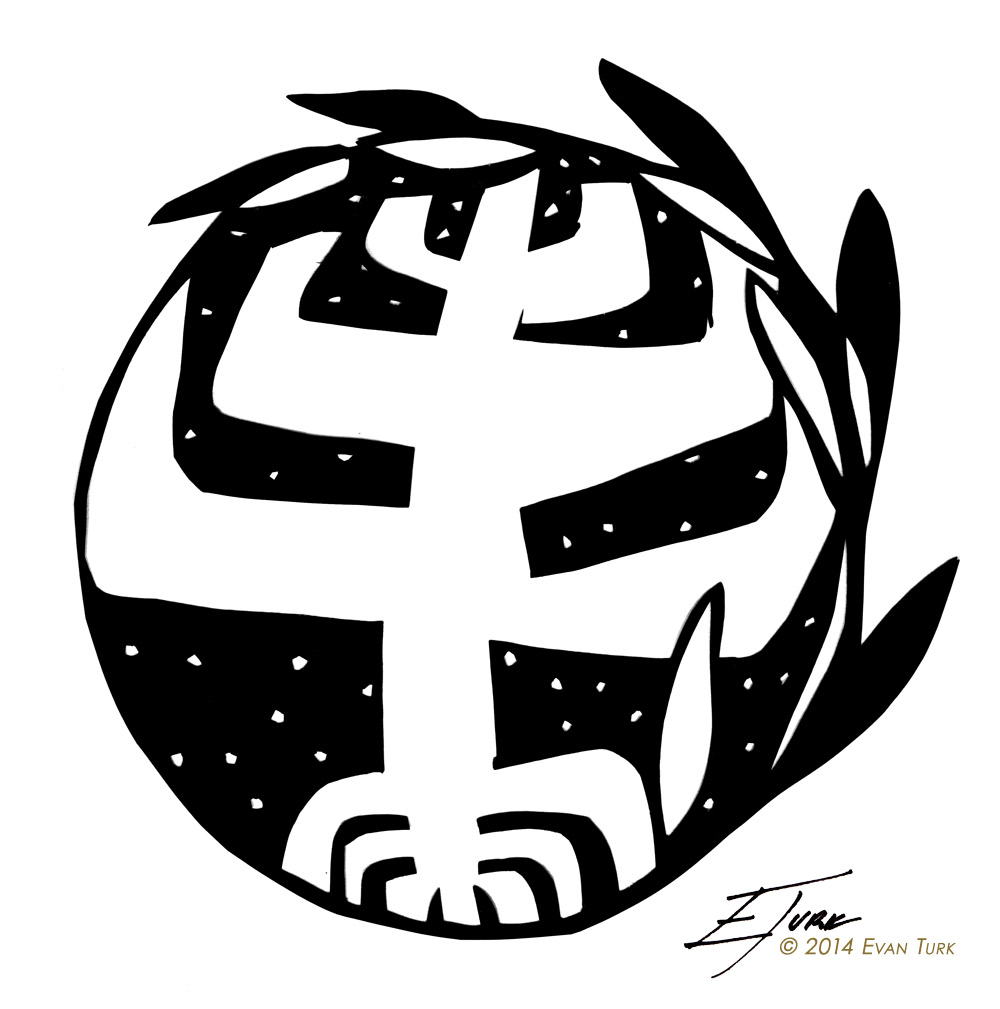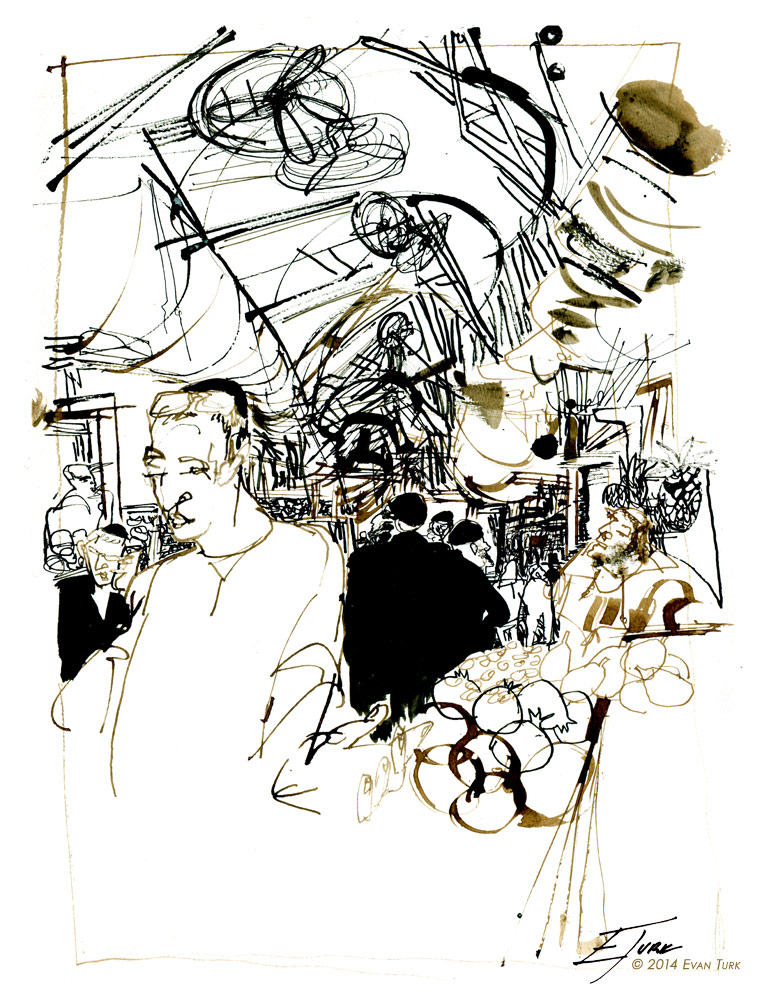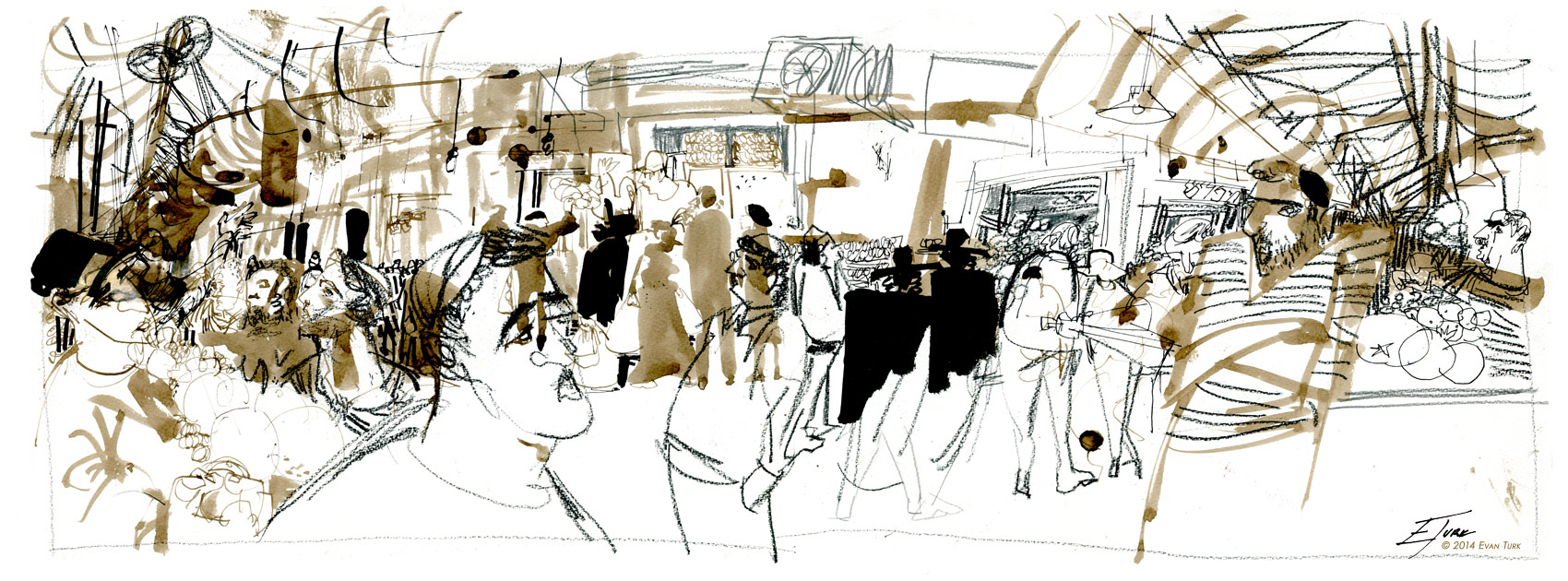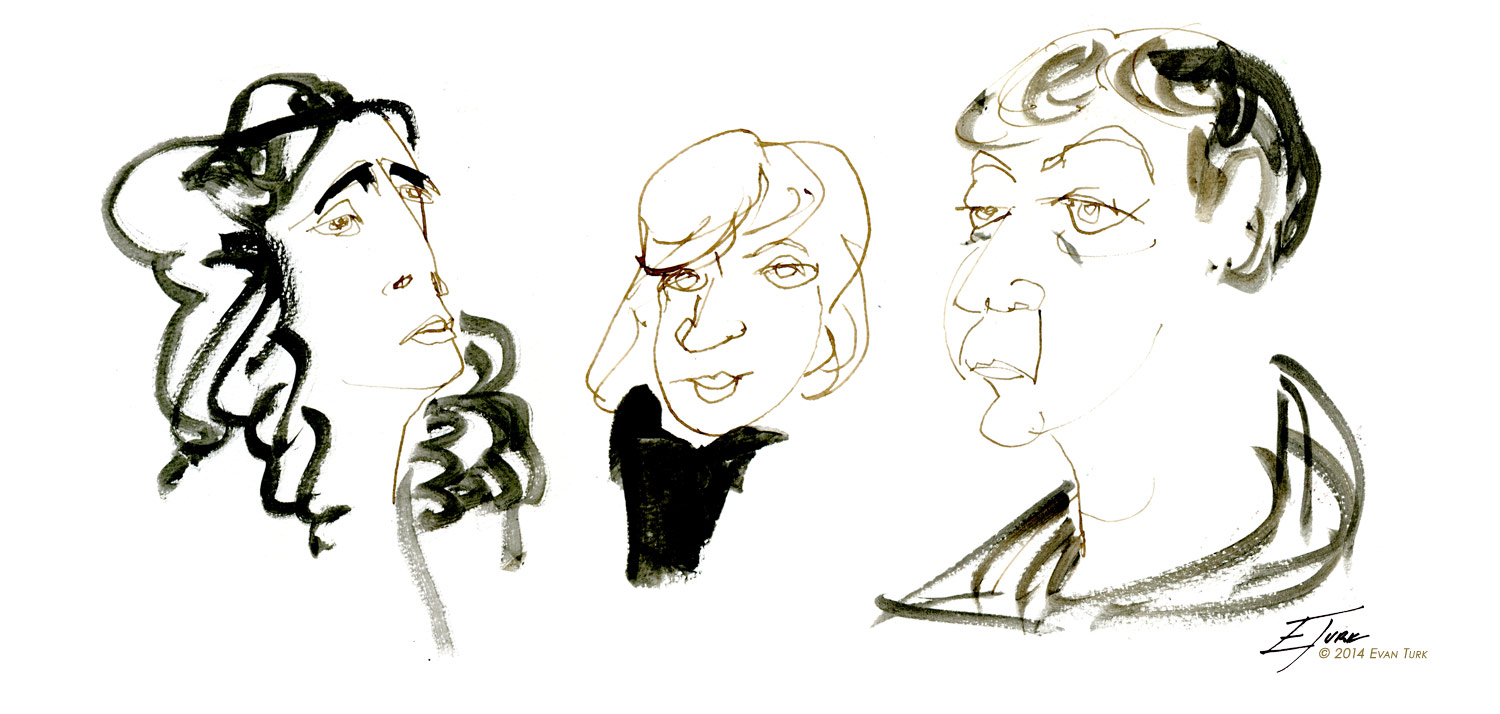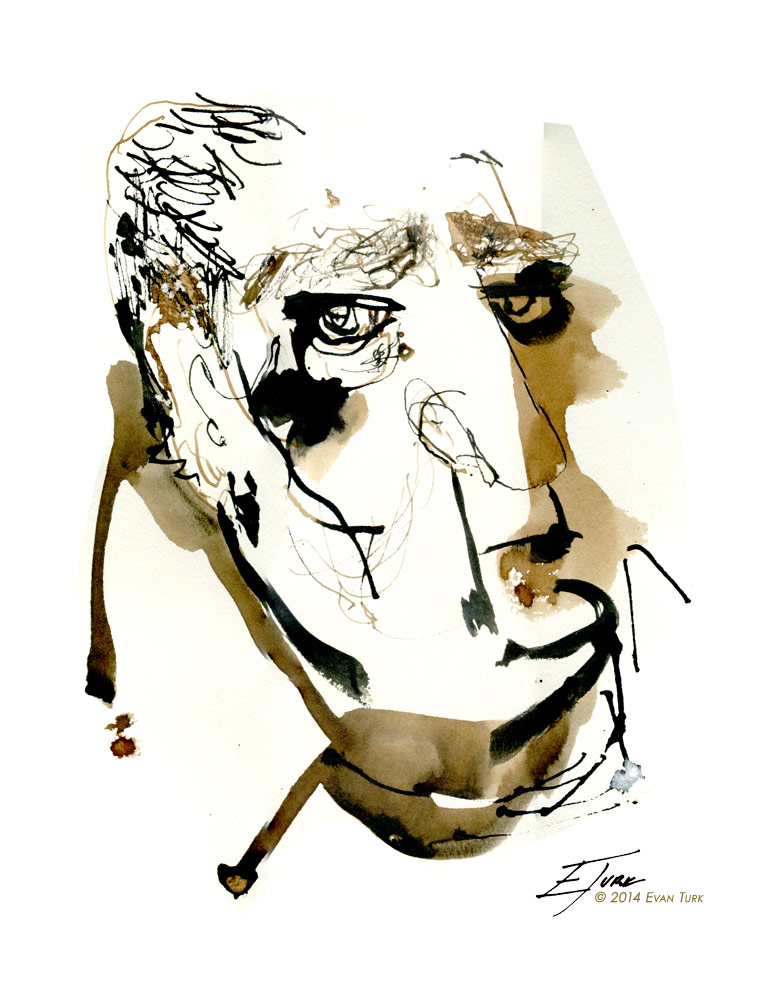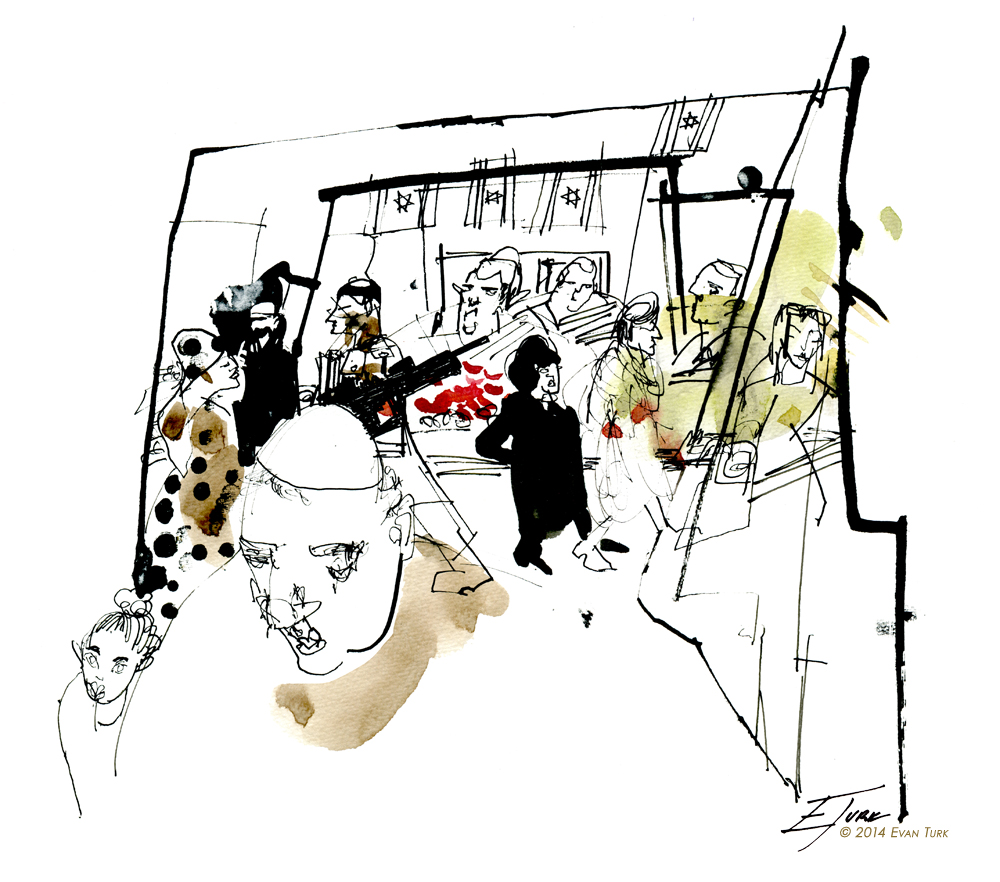My short journey was only an introduction to a place that has thousands of years of history, coming from a myriad of cultural viewpoints that are often disputed and completely contradictory, and that are intricately tied to the mythological histories of three of the worlds largest religions. Since I can’t hope to understand more than a few drops in an ocean, I’ll do my best to describe the few windows I had into trying to see this unique place.
My week in Jerusalem began with a visit to the Mahane Yehuda Market, or shuk, where hundreds of people from all over the city cram into a tightly packed set of streets lined with over 200 stalls selling ripe, bursting pomegranates, sticky dates, cheese, halva, eggs, braided hallah, gummy candy, and practically anything else that can fit in a stall.
The Market is a jittery tapestry of shifting layers and different worlds overlapping with each other, all in the simple interest of doing some shopping. Since its creation in the late 19th century, under Ottoman rule, it has been a nexus of colliding people and cultures in Jerusalem.
Arab and Jewish merchants sell and shout to every sect of life in Jerusalem. Orthodox Jews, secular Jews, tourists, Israeli soldiers, haredim (ultra-Orthodox), and non-Jews all bump and shove through the narrow alleys and haggle for the lowest price.
I came to the Market on Friday morning, before the weekly Jewish celebration of Shabbat, when the shuk is at its most crowded.
Despite the hectic bombardment of the senses for an outsider, there is a peaceful rhythm to the way the locals move through the crowds. But in Israel, there are always reminders that things have not always been, and will not always be peaceful. The Market was the site of suicide bomber terrorist attacks in 1997 and 2002. Most patrons are Jewish, as the Arabs tend to shop in the markets of East Jerusalem. Soldiers carrying their machine guns saunter through the streets with their friends shopping for candy, a reminder to kids and parents of the fact that most youth in the country will have to serve their time in the Army.
For people in Jerusalem, every aspect of daily life, even
grocery shopping...
...lays over the bristling reality of the politics and religion that are deeply embedded in the soil. But daily life moves on like the steady stream of people through the market, with a frenetic vitality and eagerness.
For
more of Evan Turk's travel illustration, check out the link below:
